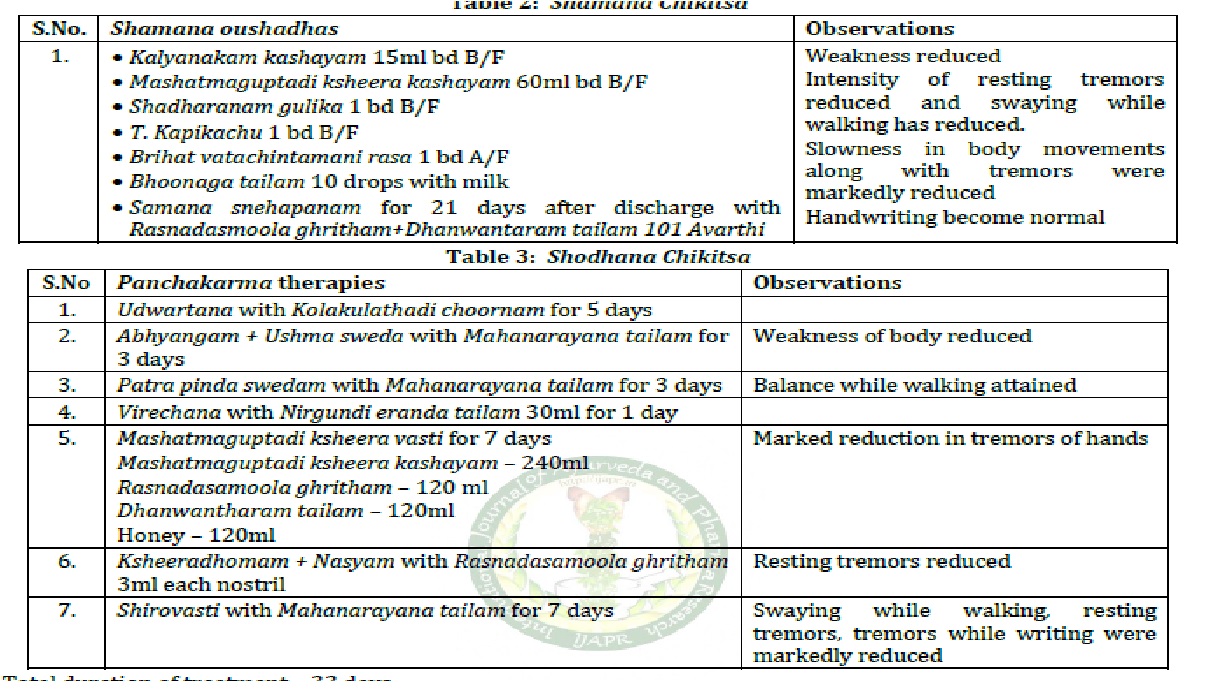Ayurveda in the Management of Neurodegenerative Disorder, Kampavata w.s.r. Parkinsonism: A Case Report
Abstract
Parkinson’s disease is a chronic progressive neurodegenerative disorder of CNS affecting the motor system, with increasing frequency in nearly 1% of the population older than 60 years of age. Affects men more frequently than women. The symptoms start insidiously and tend to be unilateral or asymmetrical at the onset. The initial manifestations may be tremor, slowness, clumsiness of an arm or leg. Tremors, rigidity, akinesia and postural disturbances are the major clinical abnormalities. Clinical features may include mask face, slurred & indistinct speech, festinant gait, stooped posture, resting tremors, rigidity (cogwheel or lead pipe). Based on the symptoms like Kampa, Stambha, Chestasanga, Vakvikriti it can be correlated to Kampavata which is mentioned under Vataja Nanathmaja Vyadhi. Application of Ayurvedic principles on the pathology involved, reveals a distinct vitiation of Vata dosha along with vitiation of Udana and Vyana vayu. The current paper is the case report of a 45 year old female patient presenting with complaints of tremors of both hands aggravate at rest, slow body movements and activities, decreased handwriting size, swaying while walking since 1 year. The case was diagnosed as Parkinson’s disease based on clinical manifestations and neurological examination. A multimodality treatment in the form of Panchakarma therapies including Basti, Shirovasti, Nasya along with Samana oushadhis for a period of 33 days yields a better result in this condition. The condition of the patient improved with gradual course of treatment. The assessment was done before and after treatment and during follow up using Hoehn and Yahr scale and Unified Parkinson’s Disease Rating Scale. Follow up with Samana oushadhis are given for 1 month. Hoehn and Yahr scale changes to stage 3 after 15 days from stage 4 and changed to 2.5 after treatment. Unified Parkinson’s Disease Rating Scale was reduced from 39 to 19. During follow up period also the values remained the same.
Downloads

Copyright (c) 2023 International Journal of Ayurveda and Pharma Research

This work is licensed under a Creative Commons Attribution-NonCommercial-ShareAlike 4.0 International License.






